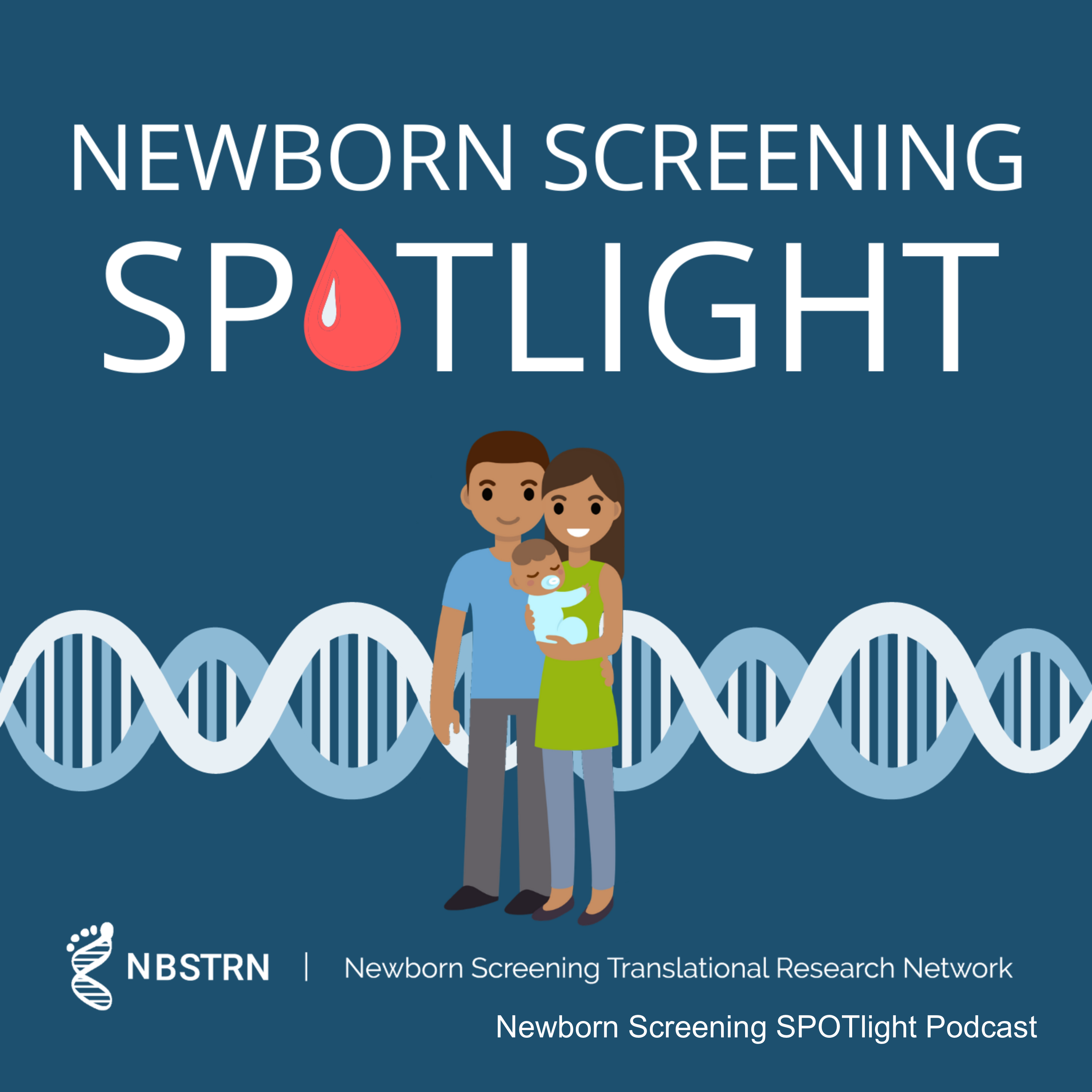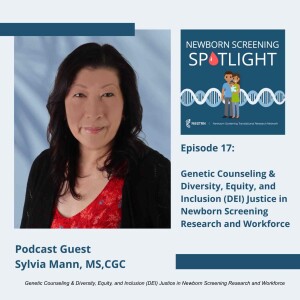
6.1K
Downloads
27
Episodes
This podcast is about the advancement of rare disease research told by health professionals, researchers, parents, and advocates. This podcast is for you to learn how newborn screening research saves the lives of babies every day through discoveries of new technologies and treatments. You will hear stories from experts who treat babies, the families who care for them, and the researchers who make it all happen.
Episodes

Wednesday Nov 23, 2022
Wednesday Nov 23, 2022
Welcome to the Newborn Screening Spotlight! Today’s episode highlights the important role genetic counselors play in the diagnosis, care, and lifelong management of newborns diagnosed with a disease through newborn screening. Genetic counseling helps families better understand available treatments and resources, and our guest, Sylvia Mann is a genetic counselor who wears many hats, three to be exact, in her roles as the Supervisor of the Genomics Section of the State of Hawaii Department of Health, the Co-Director of the University of Hawaii Pacific Basin Telehealth Resource Center, and the Project Director of the Western States Regional Genetics Network. Sylvia’s career in genetic counseling began when she received her Master of Science in Human Genetics and Genetic Counseling from Sarah Lawrence College in New York, and, this year in 2022, her over 30 years of efforts to expand and improve NBS in one or more states were recognized with the George Cunningham Visionary Award in Newborn Screening. During today’s podcast Sylvia shares the ways visionaries like Dr. Cunningham played in her journey to train and inspire current and future genetic counselors. She also shares the exciting news that she will be developing a new program to train genetic counselors using an innovative model at Creighton University beginning in 2023. Sylvia’s decades of empowering parents, families, patients, and advocates from diverse backgrounds, she lives in Hawaii after all, has resulted in professional with a rare combination of genetic expertise, sincere empathy, and a tireless work ethic that has resulted in important conversations and discussion of diversity, equity, inclusion, and justice taking place.
Interview Questions:
1. Congratulations on your recent award of George Cunningham Visionary Award in Newborn Screening at the APHL NBS Symposium. It is given to someone who has made the greatest contribution to expanding or improving the screening of newborns by public health agencies in one or more states. This year’s award recipient is you, Sylvia. In the early 1960s, many states mandated NBS within their health departments and/or state laboratories to provide coordination and oversight for NBS. Can you share with our listeners about the newborn screening system in the state of Hawaii and any specific similarities and differences on the screening system different between states?
2. In one of our podcast episodes titled “Getting on the List” which was led by our co-host Dr. Brower, we highlighted the nomination process of getting a condition added to the RUSP. However, once the condition is on the RUSP, the process of implementation of the new condition is a bit complex and seems to differ between state to state. After a new condition is added to RUSP, can you help demystify the process to our listeners - what are the next steps in state-wide implementation of screening for that new condition in general and in the state of Hawaii? (Perhaps, Sylvia you can discuss and reference your public/private partnership paper here)
3. You are currently the Supervisor of the Genomics Section of the State of Hawaii Department of Health, the Co-Director of the University of Hawaii Pacific Basin Telehealth Resource Center, and Project Director of the Western States Regional Genetics Network. Can you share with our audience how you are involved with newborn screening in these different positions?
4. November is a special month, beside the time for Thanksgivings. November is the month of Family History Awareness as well as Genetic Counseling Awareness. You are one of the very few genetic counselors working in a state public health agency. Can you tell our listeners how you got interested in a career as a genetic counselor and how does genetic counseling play a role across the lifespan especially in public health?
5. According to the 2022 professional status survey by the National Society of Genetic Counselors, 90 percent of genetic counselors in the United States are white, and the percentages of genetic counselors identifying as Black or Hispanic/Latino/Latinx1 are not proportionally representative of the general U.S. population. Why do you think there is a lack of workforce diversity?
6. In your publication, creation of the Minority Genetic Professionals Network to increase diversity in the genetics work force, you described that the Health Resources and Services Administration funded Western States Regional Genetics Network to create a Minority Genetic Professionals Network (MGPN) to recruit and mentor high school and undergraduate students to enter genetic professions such as genetic counseling. How can our listeners learn more about this network and get involve?
7. Are you involved in training the next generation of genetic counselors, and what do you tell them about newborn screening research?
8. Do you have any stories of inspiration that keep you going? perhaps, any story you can share with de-identified information)
9. What does NBS research mean to you?

No comments yet. Be the first to say something!